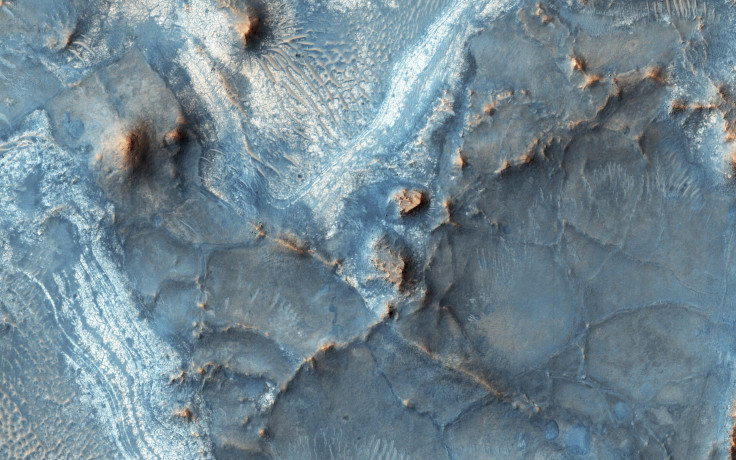Life On Mars: NASA Scientists Eager To Grow Vegetables After Obama Aims For People To Live On Red Planet

Matt Damon's character lived off of potatoes he grew by mixing Martian dirt, feces, and water while he was stuck on Mars in the 2015 film "The Martian." While NASA's scientists haven't followed that recipe exactly, they're eager to find a way to cultivate food on Mars.
New testing started on Sept. 30 to develop a "Martian garden" capable of growing vegetables on the red planet. NASA has all hands on deck to prepare for life on Mars after President Barack Obama announced Tuesday that humans will be on their way there by the 2030s. Finding something for them to eat when they get there is a daunting challenge.
Astronauts en route to Mars will have food to eat on the trip there and back, but it would save considerable space if they were able to just bring seeds for their time on the actual planet. Growing their own food on Mars may also increase morale by reminding astronauts of life back home, NASA explained.
NASA's Kennedy Space Center partnered with the Buzz Aldrin Space Institute in Melbourne, Florida, to figure out how to get Mars' barren volcanic rock to yield something edible. Using 100 pounds of soil from Hawaii to mimic conditions on Mars, NASA's Veggie team is experimenting with different nutrients and quantities for the greatest crop yields. Hawaiian soil was chosen after teams analyzed data from Mars orbiters and rovers and concluded it the most similar soil on earth.
Growing interest…We’re seeking plant varieties that could grow best in space & students in South FL are helping: https://t.co/cU1l0ZbBxh pic.twitter.com/VQSN1xPEcq
— NASA (@NASA) October 10, 2016
"Soil, by definition, contains organics; it has plant life, insects, worms. Mars doesn't really have soil," said Ralph Fritsche, the senior project manager for food production at Kennedy Space Center.
The team is trying to grow radishes, Swiss chard, kale, Chinese cabbage, snow peas, dwarf peppers, and tomatoes, all high in nutrients and specifically tested for astronauts.
The experiment is set to take nine months, with an official report planned for March 2017. Once completed, it will provide vital information for future planned missions to Mars. "There are challenges to pioneering Mars, but we know they are solvable," said NASA.
© Copyright IBTimes 2024. All rights reserved.





















